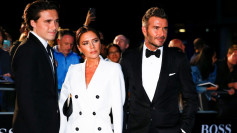George Clooney's recent acknowledgment that memorizing lines has become a "nightmare" has fueled speculation about the 64-year-old actor's cognitive health, prompting industry observers to examine whether typical ageing, professional strain, or deeper anxieties are driving the struggle. The concern intensified after RadarOnline cited sources claiming that "dementia is one of George's biggest fears," although no public evidence supports a medical diagnosis. The comments arrive as Clooney prepares for a rare return to live theatre, heightening scrutiny during one of the most demanding periods of his career.
The Oscar winner is slated to star in a Broadway adaptation of his 2005 film Good Night, and Good Luck, marking his first stage performance since the 1980s. The combination of lengthy dialogue, relentless rehearsal schedules and a high-profile opening has created new pressure for the Hollywood veteran. In an interview with The Late Show with Stephen Colbert, Clooney admitted that the rehearsal process has triggered moments of unease. "It's hard to remember your lines ... I was scared," he said, describing the sense of panic that arises when the words slip.
That admission has placed a spotlight on the mental demands associated with returning to the stage after decades away. Clooney's preparations are unfolding alongside promotional duties for his upcoming film Jay Kelly, a schedule that industry sources say could compound the stress and fatigue affecting his memory. Insiders referenced in RadarOnline characterize the balancing act as an intense strain, particularly for an actor who is known to take creative roles personally and competitively.
Speculation about cognitive decline, however, remains unsubstantiated. No representative for Clooney has suggested he is receiving treatment or evaluation for dementia, and medical experts broadly warn against equating occasional forgetfulness with neurodegenerative disease. Memory lapses under extreme pressure-especially for performers engaged in high-stakes theatre-are common, they note, and often reflect exhaustion rather than pathology.
Clooney's own remarks indicate a man grappling honestly with the realities of ageing while rejecting undue alarm. In an interview with AARP, he addressed the subject directly, stating, "It's ageing or death. Those are the two options, right? I'm OK with it." He explained that growing older had deepened his sense of perspective and added that he is "certainly... less angry" than he was in earlier phases of his career.
The actor also credited this calmer approach with strengthening his marriage to Amal Clooney. He joked about no longer caring about trivial household disagreements, noting that the couple have "never really had a fight" in part because he has learned to avoid small conflicts, such as disputes over home décor. That shift in temperament, he suggested, reflects the emotional maturity that has accompanied midlife.
Clooney has also embraced humour as he approaches physical limitations. He quipped that the clearest sign of ageing is the disappearance of his "vertical jump," adding that no longer being able to dunk a basketball marks a personal milestone in accepting his changing body.





